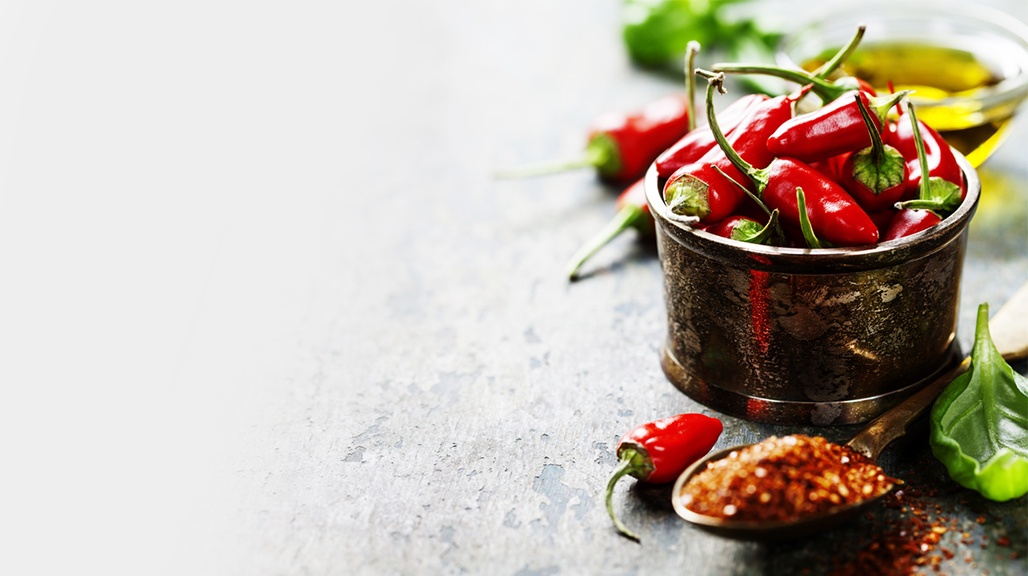Is Spicy Food Good Or Bad?
 Contributed by
Pauliina Salmenhaara
January 23, 2017
Contributed by
Pauliina Salmenhaara
January 23, 2017

Spicy food is gaining steady popularity in Asian cuisine.
From the popular kimchi of South Korea and hot ramens of Japan, to the fiery curries of India, spicy food is a beloved part of the rich culture of the Asian region. In fact, you can find special menus serving a spicy alternative to your meal even in fast food restaurants. Chili is flavorful and makes our taste buds crave for more. However, many believe that eating spicy food can cause ulcers and other stomach ailments. Hence the question: Is spicy food good or bad for you?
First, let’s look deeper at the roots of what makes these food spicy. Spicy food contains a substance called capsaicin, an organic compound most commonly present in all chili peppers. This active ingredient gives spicy food its fiery heat. There are a number of capsaicin infused products such as chili powder, paprika, curry, chili con carne, and hot sauces available on the market today.
Debunk Myth
Have you ever wondered where the burning sensation comes from when eating spicy food? The science behind it is that capsaicin binds pain receptors in our tongue, which then makes our eyes teary and our mouth on fire.
When this happens, many people will drink water or soda right away, believing it to relieve the burning sensation. Think again. Water and soda do not help; rather, they worsen and add to the burning sensation. Milk, sugar, yogurt, sour cream, olive oil, honey, and peanut butter are some of the products that you can consume to ease the fiery sensation.
The Verdict
So, is spicy food good or bad for you?
Many people think that spicy food causes gastroesophageal reflux disease, but this is not the case. According to Healthline.com, “There are many others that are worse gastric irritants than spicy food, including caffeine, alcohol, and acidic citrus fruits. If you experience digestive discomfort after eating spicy food, you might be reacting to something other than the spice in your dinner.
In fact, there are a lot of data which prove that spicy food is good for us, if taken in moderation. Hot chilies protect our stomach lining, which reduces stomach ache, and stomach bleeding caused by the intake of anti-inflammatory painkillers. It also decreases the production of gastric acid. Additionally, a study in Singapore found that consuming chilies daily can lessen the risk of ulcers. These recent studies tell us that these hot peppers are more than meets the mouth.
Here Are Other Benefits Of Eating Spicy Food:
Promotes Long Life
A 2015 study, which included over a million Chinese participants, showed that consuming spicy food six times a week lessens the risk of death by 14 percent. There is also some evidence that hot chilies can reduce the risk of cardiovascular disease, and prevent diabetes. An Australian study found out that chilies can protect us against the accumulation of cholesterol in the blood and reduce insulin.
Furthermore, a UK study discovered that a substance in capsaicin has the ability to kill cancer cells. It is also said that the popular Indian curry contains an antioxidant and anti-cancer property, which counters the growth of cancer cells, especially lung and prostate cancer.
Weight Loss
The substance found in capsaicin can increase our metabolism, and boost the ability to burn calories.
Pain Relief
Capsaicin has been proven to aid in the release of our own body’s endorphins. Endorphins are brain chemicals which transmit signals in our brains to reduce our sensitivity to pain. Although pain relief functions of capsaicin are only evident through topical use, not oral consumption, it is still worth mentioning. Capsaicin topical ointments are commonly used for pain disorders, cluster headaches, and joint problems such as arthritis.
Eat spicy food in moderation, and don’t go overboard. Despite all this evidence, excessive eating of hot chili peppers per day can cause stomach cancer. Likewise, if you already have an ulcer, it’s best to stay away from spicy food.
Balance is still the key.
—
We are the leaders, activists, innovators, and visionaries – whether in the public eye or behind the scenes – who are revolutionizing the way people think and live. We are #ConnectedWomen.
Join the Connected Women community now, it’s free!










Sorry, the comment form is closed at this time.